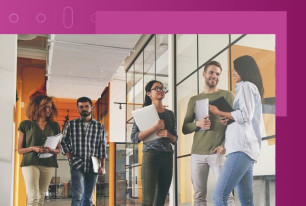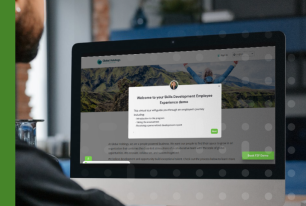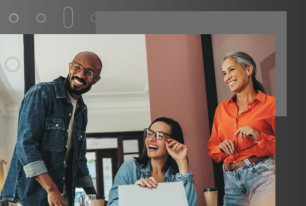Workplace Soft Skills Are a Reflection of Creativity
Our ability to be creative is shown through the behaviors that fundamentally make us who we are. If you want to be more creative at work you must further develop your soft skills.
Share
“The Person who makes something today isn’t the same person who returns tomorrow.”
- Rick Rubin
Change, in every sense of the word, is disruptive. For years we were conditioned to raise our hand and wait to be called on before we spoke. The point of being disruptive is to change the current state. Today, if you are called a Disruptor, you are communicating information that is the first form of dissent against the current state of what is universally agreed as normal. Art has been a powerful way to create disruption, and our relationship with creativity is something to be further explored. Artist Henri Matisse is credited with saying that creativity takes courage. Those bold enough to express their creativity through their job skills may be the most future-proof employees available.
Consider this: Your willingness to express your creativity reflects your current personal traits and behaviors (SoftSkills). How we do anything is how we do everything.
Yes, I do consider myself to be an artist. You must come to see my gallery—The Remote Office. I decorated it myself. I recently completed a piece that was made entirely of 2,500 emails. It took me a week to complete it and I collaborated with seven other artists. Everything we do is an expressive act of ourselves. Sending 2,500 emails is another way of saying not only do I have the drive to set a demanding goal for a week, but I also have the tenacity to endure a long process that will involve multiple digital platforms and input from other people. The result of all that input is a body of work that required collaboration, time management, and communication—all forms of soft skills rooted in the pursuit of expressing your creativity at work. Writing is a creative art form even when the medium is email. Want to achieve a 100% email open rate? Get curious. See what others have done to try and crack the code. What were they trying to achieve based on their context and how will you begin sketching your version until it becomes clear? My art has been wildly popular lately and I do hope others can express their creative efforts through the new medium of remote work.
Admittedly, being creative sounds like it is more analog and utilizes conventional materials. Canvas, clay, film, and raw food, all of these require a disruptive act for their artistic expression to be revealed. You must add paint to the canvas; you must shape the clay, you must expose the film to light, you must prepare raw food. Common challenges faced in the workplace require a creatively disruptive approach to finding solutions. How do you enable sales teams? How do you foster a feedback-based environment? How do you create a more inclusive place to work?
Each scenario requires a number of soft skills that may or may not be present within your teams or leadership, or maybe even you! That is ok. The important thing is to recognize that there is a medium present where you can now express your ability to problem solve, work with others, and produce a solution that may effectively change how we work for the foreseeable future. The genesis of verbal communication is thought to be from the need to teach survival skills that also required crafting tools. Remote work became more available during and after the pandemic as a need to continue to work, and well…survive. It is now a new medium for creative expression at work.
Common challenges faced in the workplace require a creatively disruptive approach to finding solutions.
The relationship between creativity and work is subjective. Here are three things you can do this week to become more creative and help build your soft skills.
- Move your workspace – Flexibility
Sometimes a literal change in direction will help inspire your creativity. I move my desk and office furniture at least once a year. It compels me to throw away old or unneeded items and provides space to control my immediate environment. Many organizations are actively listening to how they can make work better for you. Speak up and see if they can accommodate a small request to improve your immediate surroundings to improve your productivity. - Ask to work with a team you normally do not work with – Generosity
When I was in college I worked as a television producer on the local access channel. I learned how to shoot and edit videos in short and long formatting and utilized that skill in as many departments as possible in every single job I had after graduation. What skills or experience do you have that could be used on another team? Just because I do not work in television anymore does not mean I have to stop creating videos for work. Share all your skills with others. You may be the solution. - Dabble in AI – Curiosity
We are still in the infancy of what AI can offer to humanity and there is a lot of contention for its use. Everyone has access to this wildly powerful tool that has yet to be used to its full potential. Keep in mind, before the internet was in our households we lived almost entirely in a text-based, analog world. You may find yourself using a new medium that becomes the next art form that helps us complete our work. Our jobs are creative forms of expression just like painting, playing music, or pursuing our most beloved hobbies. Our ability to be creative is shown through the behaviors that fundamentally make us who we are. If you want to be more creative at work you must further develop your soft skills.
Join us in our upcoming LinkedIn Live event 'The Future of Skills Is Evolving…Are You Prepared?' where Nicole David (Head of Delivery), Andrew Nelesen (Solutions Group Leader), and I will talk about which skills are most valuable in today's world of work, and for the future!









